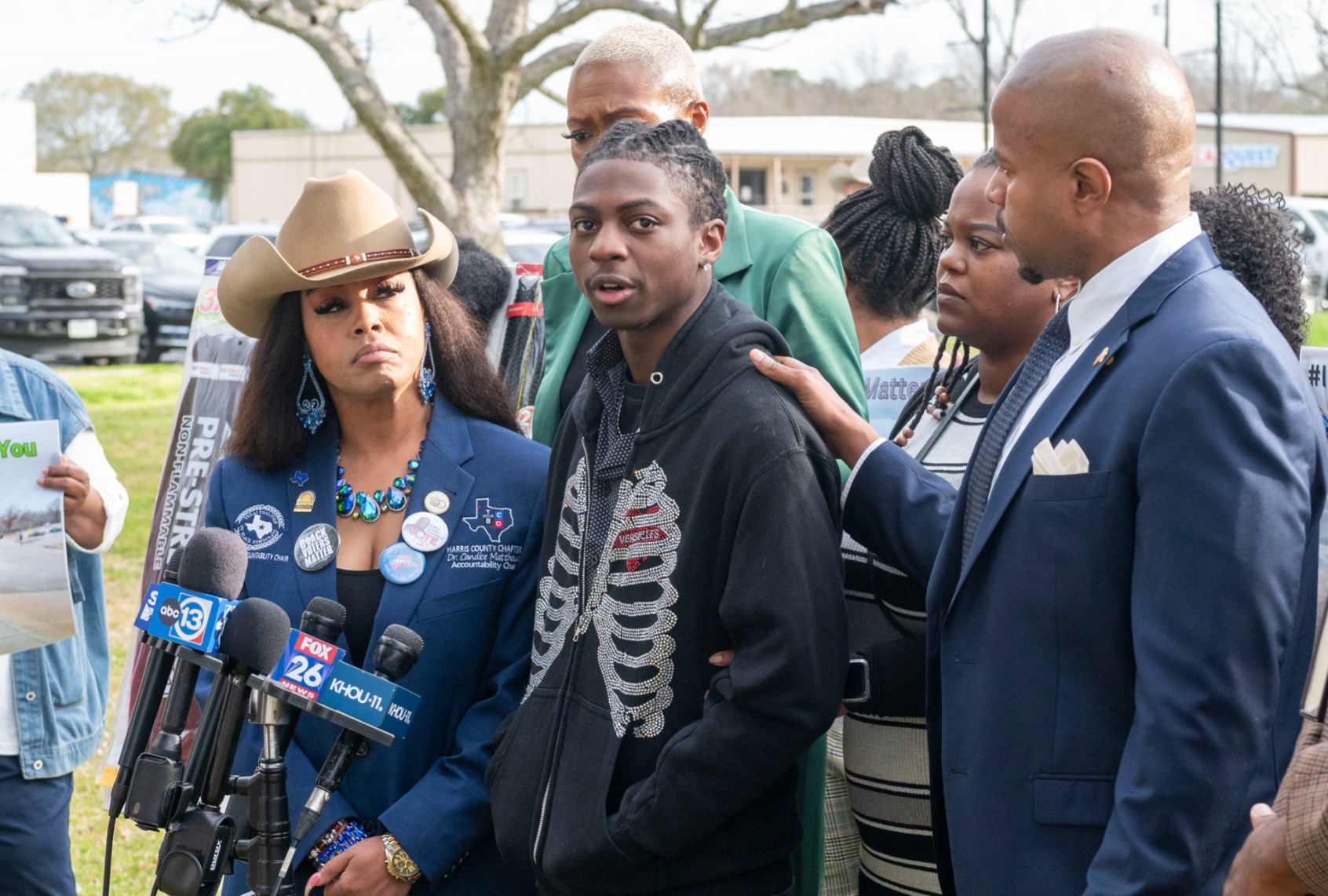A Texas judge made a significant decision on Thursday regarding the rights of a Black student in the Barbers Hill Independent School District, stating that the district can penalize the student for wearing his hair in long locs without violating Texas’ new CROWN Act.
This Act, designed to prevent hairstyle discrimination in both schools and workplaces, had been a focal point in a prolonged disagreement between the district and Darryl George, a junior at Barbers Hill High School. George had been placed in in-school suspension since August for sporting his hair in long locs.
Last year, Texas legislators passed the Texas CROWN Act, which prohibits discrimination based on hair texture or protective styles associated with race. Protective styles, including locs, braids, and twists, were explicitly mentioned in the Act.
However, the Barbers Hill school district successfully argued that it can enforce its policy, which prohibits males from having hair that extends beyond certain lengths, even if the hair is gathered on top of the head.
Judge Chap B. Cain III issued this ruling after a brief trial where lawyers representing opposing sides debated the legislative intent behind the CROWN Act. Lawyers for Barbers Hill contended that lawmakers would have included explicit language regarding hair length if they had intended for the law to cover it.

Judge Rules Texas School District Can Discipline Black Student Over Hairstyle Length (Credits: The 19th News)
On the other hand, Allie Booker, representing Darryl George and his mother Darresha George, argued that protective styles necessitate longer hair. Booker emphasized that significant hair length is essential for styles like braids or locs.
The ruling left George and his mother visibly upset, with George expressing his incredulity at the situation, questioning, “All this because of my hair?” Greg Poole, the superintendent of the Barbers Hill school district, praised the decision, asserting that the district’s dress code aligns with the law and doesn’t grant students unlimited self-expression.
Poole also hinted at potential future legal challenges to the CROWN Act, drawing a parallel with a recent U.S. Supreme Court ruling on affirmative action in college admissions.
Despite the disappointment surrounding the ruling, Booker expressed her intent to appeal the decision and pursue further legal action. Representative Rhetta Bowers echoed this disappointment, emphasizing the importance of the CROWN Act in combating systemic injustices related to race and personal expression.
During the trial, witnesses including Darresha George and Representative Ron Reynolds, who co-authored the CROWN Act, were called upon to provide insight into the legislative intent behind the law.
Reynolds highlighted his motivation for introducing the legislation, citing previous incidents of discrimination against Black students like DeAndre Arnold. Arnold had faced similar challenges regarding his hairstyle at Barbers Hill High School, leading to legal action.
Ultimately, Judge Cain sided with Barbers Hill, suggesting that the CROWN Act could be revised to explicitly address hair length. However, he did not comment on the constitutionality of the district’s grooming policy, which Booker had argued violated the equal protection clause of the Constitution by targeting one gender.
She contended that the burden lay with the school district to prove the necessity of their grooming policy in light of the protected class established by the CROWN Act.
Despite the ruling, George remains in in-school suspension, which reportedly deprives him of instructional materials and hot meals. George expressed the emotional toll this experience has taken on him, describing it as isolating and damaging to his mental health.























